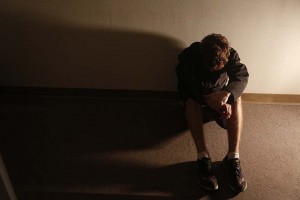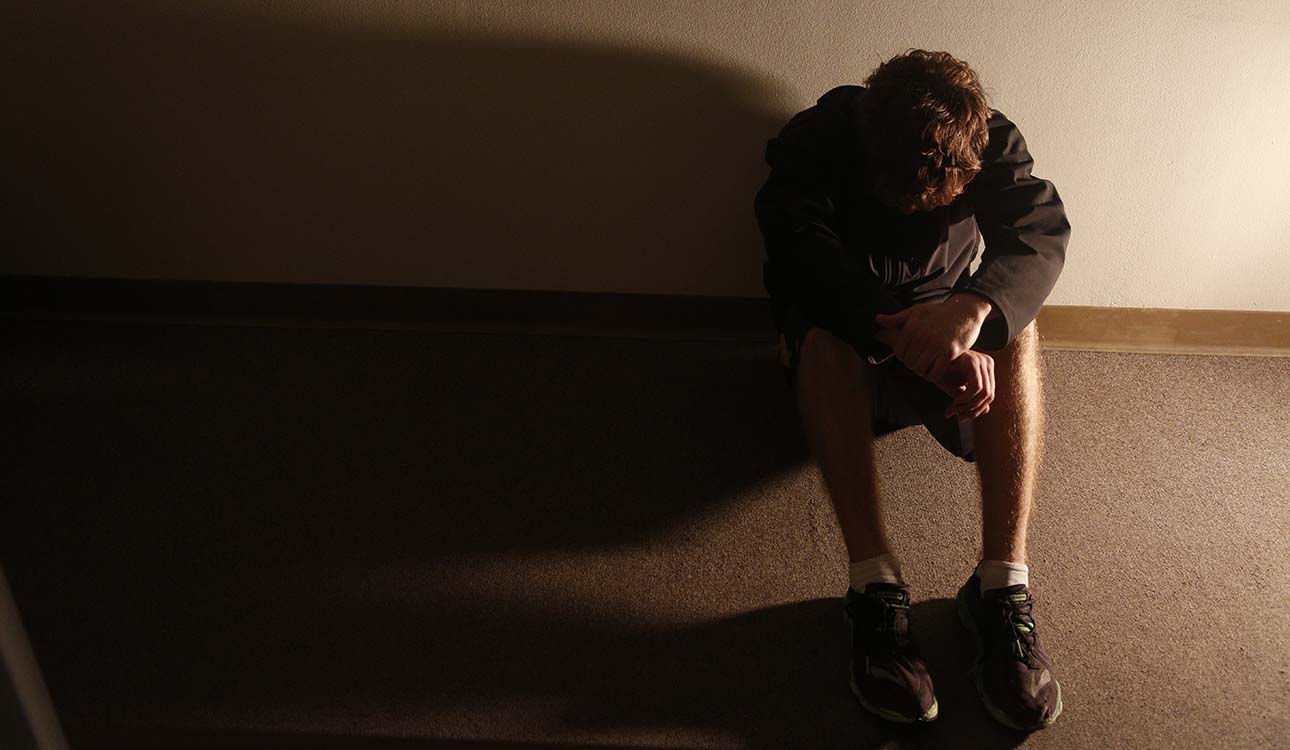
Web Editor
“I knew immediately that something wasn’t right, but I didn’t know. It didn’t even occur to me that I could leave. It didn’t occur to me that I could walk away. It didn’t occur to me to say stop. I just, something felt funny in my stomach but I didn’t know what to do,” said Christopher Anderson, executive director for MaleSurvivor, a national organization that provides resources to help with hope, healing, and support for male survivors of sexual assault.
For many survivors of sexual assault, especially child sexual abuse, this feeling of discomfort is all too common.
According to the Rape, Abuse, and Incest National Network, survivors are also faced with low self-esteem, self-hatred, depression, guilt, shame, blame, sleep disturbance or disorders, lack of trust, revictimization, flashbacks, dissociation, struggles with intimacy and sex, grieving or mourning the loss of childhood and innocence, alcohol and drug use, eating disorders and self-injury. For many victims, the sexual assault was their first sexual encounter and so they are faced with the loss of their virginity.
According to the World Health Organization, victims of sexual assault are three times more likely to suffer from depression, six times more likely to suffer from post-traumatic stress disorder, 13 times more likely to abuse alcohol, 26 times more likely to abuse drugs and four times more likely to contemplate suicide.
The American Medical Association in 1995 declared sexual abuse a “silent-violent epidemic” and the Centers for Disease Control and Prevention as well as the World Health Assembly have declared violence prevention as a public health priority. There are many researchers, including those associated with the World Health Organization, that view sexual assault as a global pandemic.
For Anderson, the sexual assault did not begin immediately. When he was 8 years old, a man moved into the neighborhood with a son who was the same age as Anderson. Through the friendship with the man’s son, the man was able to befriend Anderson. The man became a father figure because Anderson’s own dad worked two jobs and was often gone. For several months, Anderson spent a lot of time with the man and his son, hanging out at his house and going there after school. After a couple of months passed, the man took the next step.
“I remember one day he asked me if I wanted to wrestle with his son just sort of like a suggestion like something fun to do,” Anderson said. “And then I said, ‘OK, sure.’ And then he asked me if we wanted to do it WWF style and I didn’t understand what that meant. And he said, ‘Well you know, in your underwear like they do on TV.’ And I remember feeling kind of weird about it, but his son seemed willing to go along, and I remember wrestling in the bedroom with his son and I kind of remember the man had a camera and he took some pictures.”
While there are thousands of research articles that address the sexual assault of females, there is less attention given to the issue of sexual assault of males on a global scale, based on the article by Ruth Graham, professor at the University of Newcastle upon Tyne, UK, titled “Male Rape and the Careful Construction of the Male Victim.” The issue of male sexual assault is also given less attention at the national and local level here in the U.S., based on the publication “When Men Are Raped” published by the Ohio State University Rape Education and Prevention Program via funding from the Ohio Department of Health.
Part of that is lack of reporting by males who are the victims of sexual assault.
“The male victim is not an issue that we have faced,” said Baylor Police Chief Jim Doak. “I have not had a male come in and say, ‘I’ve been sexually assaulted.’ It has not happened.”
According to records received by The Baylor Lariat through the Texas Public Information Act, there were 472 cases of sexual assault or aggravated sexual assault that were investigated by the Waco Police Department between 2011 and October 2013. In the areas surrounding Baylor and the Waco downtown area, including Cameron Park, there were 201 cases of sexual assault. Of those cases, there were 25 male victims, 10 of whom were 18 years of age or older.
Based on statistics from the Centers for Disease Control and Prevention, the National Institute of Justice and the U.S. Department of Justice, one in six boys will be sexually assaulted before their 18th birthday. Furthermore, The Campus Sexual Assault Study prepared for the NIJ shows that 6.1 percent of college males will be the victim of an attempted or actual sexual assault while in college. According to the 1998 “Prevalence, Incidence and Consequences of Violence Against Women Survey” by the NIJ and the CDC, 3 percent of American men, or one in 33 men, have experienced an attempted or completed sexual assault during their lifetime.
Despite the number of men that are the victims of these types of crimes, the number of male victims that come forward is drastically underrepresented and the crime is drastically under-reported, according to the Florida Council Against Sexual Violence and the “Sexual Victimization of College Women” report available through the National Institute for Justice. Until the last five years, there were no male celebrities, politicians or sports players on the national scene talking about males being the victim of sexual assault until Tyler Perry revealed that he was the victim of sexual assault when he was a boy.
“I think from society, unfortunately, they hear the stigma that they are weak or that maybe they wanted that to happen, and in that sense I guess it’s analogous to the female survivors, what they experience,” Dr. Cheryl Wooten, staff psychologist at the Baylor Counseling Center, said. “But maybe there’s a different pejorative effect since it’s a guy. Like, since you’re a guy, why didn’t you stop it? I think that people think to say that to female survivors too, but it’s kind of like you’re supposed to be physically strong enough to stop it.”
Based on Wooten’s experiences, she has worked with men who were the victim of sexual assault who have a palpable shame and a sense that “there is something wrong with me that this happened to me.”
The stigmas male victims face are harmful to the men that are dealing with the fact that they have been sexually assaulted.
“I think it’s similar to what females victims share – that feeling that they are at fault,” said Amy Perkins, executive director of the Waco Advocacy Center. “It’s something to hide. It is something that they don’t want known because they feel shamed or they are upset. … To be violated in that way is devastating.”
For most male victims of sexual assault, they struggle with their sexual identity after the assault, according to the article “Sexual identity issues for male survivors of childhood sexual abuse: A qualitative study” in the Journal of Child Sexual Abuse .
“I think our society says, ‘It’s on you, you’re a guy, you should have stopped this,’” Wooten said. “I think sometimes it causes great tension for male survivors around ‘how do I integrate this into my sexual identity?’ Whether they are homosexual, heterosexual, bisexual, they still have to figure out ‘what do I do with this experience and how do I integrate it into how I want to express myself as a sexual being?’”
Male victims, when the perpetrator was another male, struggle with wondering if they are gay because of their experience with sexual assault. In “Sexual Abuse of Boys” in the Journal of the American Medical Association, a survey of men who raped boys shows that 98 percent of those surveyed reported they were heterosexual. According to the World Health Organization, sexual assault is about power and control, not about sex. However, for the victim it is the sex that causes them problems.
This is especially true when the victim has an unwanted bodily reaction to the sexual assault. For men and boys, if they get an erection during the course of the sexual assault, the fact they became aroused is used as “proof” that they wanted the sexual contact by the perpetrator during the assault or those that find out about the assault after the fact. However, the human body is designed to respond to sexual stimulus, regardless of whether the sexual contact is wanted or not, according to the article “Sexual arousal and orgasm in subjects who experience forced or non-consensual sexual stimulation” published in the Journal of Clinical Forensic Medicine.
That is not the only thing that male victims struggle with. Male victims of sexual assault face the myth that they will perpetrate others.
“I think what I have experienced more with that is people wondering how it’s going to affect the future for their trajectory,” Wooten said. “I have heard people say some very insensitive things like wondering if that child’s going to grow up to be a perpetrator or it means that their sexuality is pre-determined when they grow up.”
While there are examples where this has happened, most men who were victims of sexual abuse never go on to sexually victimize someone else, according to the article “Factors in the cycle of violence: Gender rigidity and emotional constriction” in the Journal of Traumatic Stress.
“The first one involves the vampire myth,” Anderson said. “Basically it says that a male survivor that has been sexually victimized is more likely to go on and victimize somebody else like they’d been bitten by a vampire. That is absolutely not true. The vast majority of survivors of sexual violence never go on to perpetrate sexual violence on others.”
For Anderson and other male victims, society’s belief in this myth sometimes prevents them from getting a job teaching or working with children, even though they have no desire to sexually assault another person and have that person go through what they have gone through.
For victims of sexual assault, the impact of their sexual assault will never go away. They will have the memories or at least fragments of the memories, of the sexual assault, for the rest of their lives.
Anderson has large chunks of time from that period where his memories are hazy as a result of dissociating. Dissociation is defined as “a disruption in the usually integrated functions of consciousness, memory, identity, or perception of the environment” by the Diagnostic and Statistical Manual of Mental Disorders IV-TR.
However, he has two memories that he is able to clearly recall. The first was him wrestling with the man’s son when they were in their underwear and the man was taking pictures.
The other happened a short time later, when Anderson went over to the man’s house again and “the son wasn’t there and he asked me if I wanted to wrestle with him. I remember stepping into the bedroom and I remember being on his bed. I remember him being on top of me. He fondled me and at one point I remember sort of turning my head to the right and I zoned out essentially to the sound of the air conditioner and I know now what I did was I dissociated. My brain took my own consciousness out of the moment.”
Baylor Police: 254-710-2222 (on campus)
Waco Police: 254-750-7650 (off campus)
Waco Police: 911 (emergency)
Waco Advocacy Center: 254-752-9330
Baylor Counseling Center: 254-710-2467
For males who would like to connect with other sexual assault victims, MaleSurvivor provides resources to unite survivors. Visit https://www.malesurvivor.org.






